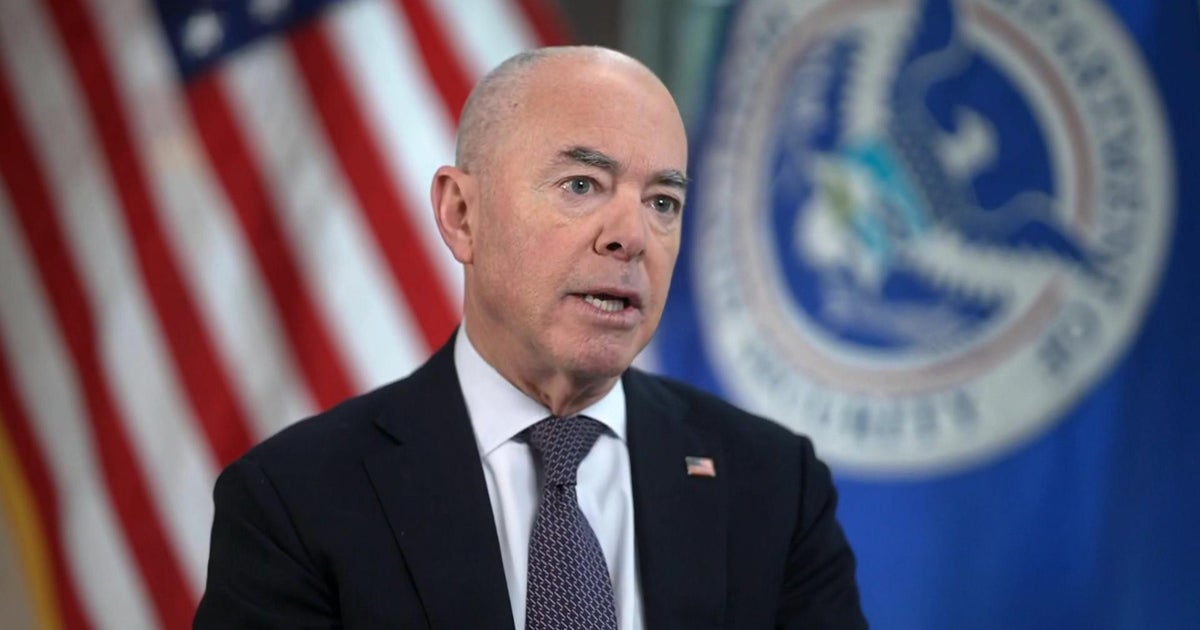Adam Schiff says House to make criminal referral on Blackwater founder Erik Prince
House Intelligence Committee Chair Adam Schiff says the panel will be moving to make a criminal referral for former Blackwater security firm founder Erik Prince to the Justice Department for allegedly misleading the committee and making false statements. Schiff, speaking at an event at the Washington Post on Tuesday, said there was "very strong evidence" that Prince "willingly" did so.
Prince, now the head of the Hong Kong-based company Frontier Services Group, has ties to President Trump's former chief strategist Steve Bannon and is the brother of Education Secretary Betsy DeVos.
After reading special counsel Robert Mueller's Russia report, Schiff said that "the evidence is so weighty that the Justice Department needs to consider this." Schiff said Prince's testimony on his dealings with the Trump campaign, particularly a meeting he took in the Seychelles with a Russian banker close to President Vladimir Putin just nine days before Mr. Trump's inauguration, has proven to be overwhelming false.
"This meeting in the Seychelles with this Russian banker was purely by chance, he just happened to be there and his hosts suggested, he just happened to go to the Seychelles for about a day and have a chance meeting with this Russian banker," Schiff said to a crowd of laughs. That chance encounter was reportedly part of a larger effort to establish a back-channel line of communication between Moscow and the incoming president.
The Mueller report says that Kirill Dmitriev, head of Russia's sovereign wealth fund, asked an associate, George Nader, to introduce him to Trump transition officials. Days before Mr. Trump was inaugurated, Nader wrote to Dmitriev that he had "arranged for Dmitriev to meet 'a Special Guest from the 'New Team,' referring to Prince." Nader asked Dmitriev to come to the Seychelles for the meeting with Prince on Jan. 12, 2017, and "Dmitriev agreed."
"Well, we know from the Mueller report now that was not a chance meeting, that he had preparatory materials about him before he left, that he had discussions about it with Mr. Bannon before he left, we know there were communications after he returned. He was also asked whether he was attempting to establish a back channel for the Trump transition or campaign, which he also denied, and it's also clear from the Mueller report that was false and misleading," said Schiff.
He added, "so in very material ways, I think the evidence strongly suggests that he willingly misled our committee and the Justice Department needs to consider whether it can make a prosecutable case."
According to the Mueller report, Dmitriev was "disappointed" in his meeting with Prince because he felt that Prince did not have enough authority within the incoming Trump administration, and he thought their discussion had lacked substance. He had hoped to talk about "outlining a strategic roadmap" for U.S.-Russia relations. Though the next sentence in the report is redacted because it involves grand jury testimony, it says that Dmitriev found something in Prince's comments "insulting."
Prince told the special counsel that afterward, he met with Bannon and briefed him on his meeting with Dmitriev. He said that Bannon instructed him "not to follow up with Dmitriev," and he said that his impression was that Bannon didn't feel the issue was a priority.
But Bannon contradicted Prince's account. He told the special counsel that he had never discussed with Prince anything about Dmitriev or anyone associated with Putin. "Bannon also stated that had Prince mentioned such a meeting, Bannon would have remembered it, and Bannon would have objected to such a meeting having taken place," the Mueller report says.
The report also notes that the contradictions can't be resolved because neither Bannon nor Prince still has the any of the text messages they exchanged around the time of the Seychelles meeting. Though mobile provider records show they exchanged "dozens" of messages, neither Prince nor Bannon have messages "prior to March 2017." Both said they did not know why there were no messages on their devices before March 2017.
Asked if his committee would be willing or able to bring Bannon back in considering his own misleading comments to lawmakers, Schiff said "we may."
Schiff said that in congressional interviews, Bannon refused to answer almost all of our questions and when we pressed to hold him in contempt the GOP members of our committee would not go forward. Schiff said Bannon explained he would not answer any questions because the White House had asked him not to.
For now, the Democrat says his committee is combing through the nearly 400-page long Mueller report to determine "what areas did Mueller exhaustively examine, such that there's no need to reinvent the wheel, what areas did he not examine and what areas would the public benefit from the public airing of the testimony."



